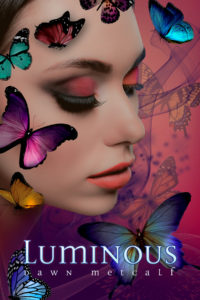It’s No Mystery
I love Sherlock Holmes. I'm a huge fan. Graduating from Nancy Drew and the Hardy Boys to Baker Street felt like growing up. Sherlock Holmes was a man who possessed a dizzying mind, an almost cruel intellect, and was unabashedly outrageous in his improvisation and resourcefulness in his relentless pursuit of the truth at the core of whatever mystery lit him up. His life as seen through the eyes of the more empathetic Dr. Watson, a good man of morals and ethics and heart even after returning injured from the horrors of war, was one of astonishing adventure and perplexing character. I was as astounded as Dr. Watson was of his new roommate. The stories were elegant and exotic and glorious. I read them over and over (the telltale sign of a really good book)!

Okay, I admit, I missed the deerstalker hat and was thrilled when they wrote it in!
I've seen plays and TV shows, and although a big fan of anything Robert Downey Jr. since Less Than Zero, I didn't really think the steampunk-ish romp that had much to do with Sherlock Holmes outside the characters' names. (Honestly, when I first heard the casting, I thought Jude Law would be Sherlock and Downey as Moriarty. Ah well.) So when I heard about the BBC production, I was skeptical, but boyishly bright-eyed Benedict Cumberbatch does an amazing job with his rail-thin loping walk, his thin musician hands and his resonant voice with a sparkling script that somehow manages to blend the original text and intent with modern day things like blogs, texts and modern science. I was astounded at how well they'd brought the stories fast-forward and at the first episode, I was hooked!
This current Sunday Night obsession (sorry, Once Upon A Time) made me think back on my love of this character and the last two episodes of this second season really hit the reason why: as brilliant and observant and decisive and instinctive as Sherlock Holmes may be, he is deeply flawed in the most obvious ways possible. While the heavier addictions in the stories has been softened to a nicotine habit, the real deficit is Sherlock's inability to connect with people. While he understands what motivates people emotionally as the cause and effect of human psychology behind most crimes, he himself is moved by very little outside the thrill of the chase; malaise is his greatest enemy (aside from one "consultant criminal") and he is almost unable to see people as other than means to an end. It is perhaps the most interesting part of John Watson's character why he stays by Holmes, as if to protect the man from himself despite himself, and the most interesting parts of watching the show as Sherlock railroads Molly or bosses his landlady or finds himself livid at Miss Adler or completely undone by his irrational fear of the Hound. Lately, those flaws have been gaining ground over cold intellect and we're getting to see Sherlock Holmes undone, repentant, and (in his scathing words) "sentimental."
And I *love* it!
I've always loved the tragic hero best, the one that struggles to overcome adversity and, in the face of total loss, sticks to their gins/principles/ethics/honor and fulfills their mission even at the cost of their life. Central to being tragic (or caring about the character at all) is being flawed, deeply flawed, and that those flaws are the root and center of the conflicts that most often are the worst things that we can do to ourselves. The things that make the readers think, "If only they wouldn't *do* that then everything would work out fine!" But then again, they wouldn't (and couldn't) be the characters that they are.) George's curiosity or Winnie the Pooh's all-consuming love of honey is like Katniss' distrust of emotion and Harry Potter's inability to be truthful with Dumbledore, even when asked (but then again, he hasn't had much reason to trust adults in the past). There are reasons for the flaws, some origin point for a lust for shiny objects or a fear of snakes that often spell the character's doom just as effectively as an outside flaw: Who would Elric be without the sword? Who is Frodo without the One Ring?
I wonder if emotions will be this Sherlock's undoing or, as I hope with many the tragic, flawed characters I've come to adore, it will make him stronger than ever to triumph in the end? I'll be tuning in to find out every Sunday at 9pm to find out!



